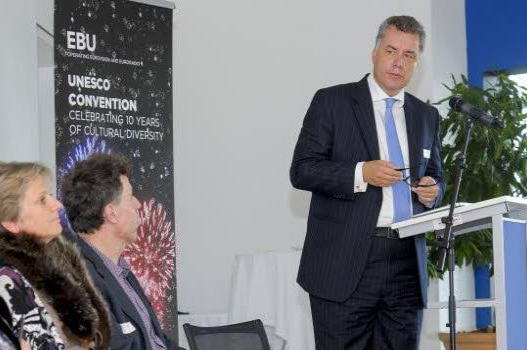
European public broadcasters and the European Coalitions for Cultural Diversity (ECCD) are calling for the protection of cultural diversity and the principle of technological neutrality to be included explicitly in the final text of the Transatlantic Trade and Investment Partnership (TTIP).
The 2005 UNESCO Convention on the Diversity of Cultural Expressions gives all signatory countries and regions the right to promote and protect cultural expressions in their territory.
The European Broadcasting Union (EBU) and the ECCD are calling for a clause that would safeguard the freedom of EU countries to adopt measures promoting cultural diversity, including ensuring the capacity of audiovisual and media services to serve public interest goals. The USA is not a signatory to the Convention, and has yet to make public its negotiating position.
Speaking ahead of an event in the European Parliament to mark the 10th anniversary of the UNESCO Convention, EBU president Jean-Paul Philippot remarked that “the objectives of the UNESCO Convention are more relevant than ever today.”
“Economic constraints and increasing consolidation in our sector is placing ever greater pressure on the unique role of public service media in Europe. We need to make crystal clear that securing a deal on services under TTIP cannot be at the expense of our cultural heritage and values,” he added.
The EU’s current negotiating mandate for TTIP advocates the exclusion of audiovisual services from chapters on investment, cross border supply of services and electronic commerce. However, their exclusion from the “regulatory framework” chapter is only implicit. Both organisations argue that explicit reference to audiovisual services should be made in this chapter, in addition to a horizontal clause recognising the sovereignty of signatories, including EU Member States, over their cultural and media policies.
They also highlight that the principle of technological neutrality is clearly affirmed within the definition of cultural diversity in the UNESCO Convention, and argue that audiovisual services should continue to be defined on the basis on this principle under any future trade deal.
Image: MEP Christian Ehler, European Union 2015 – source: EP







